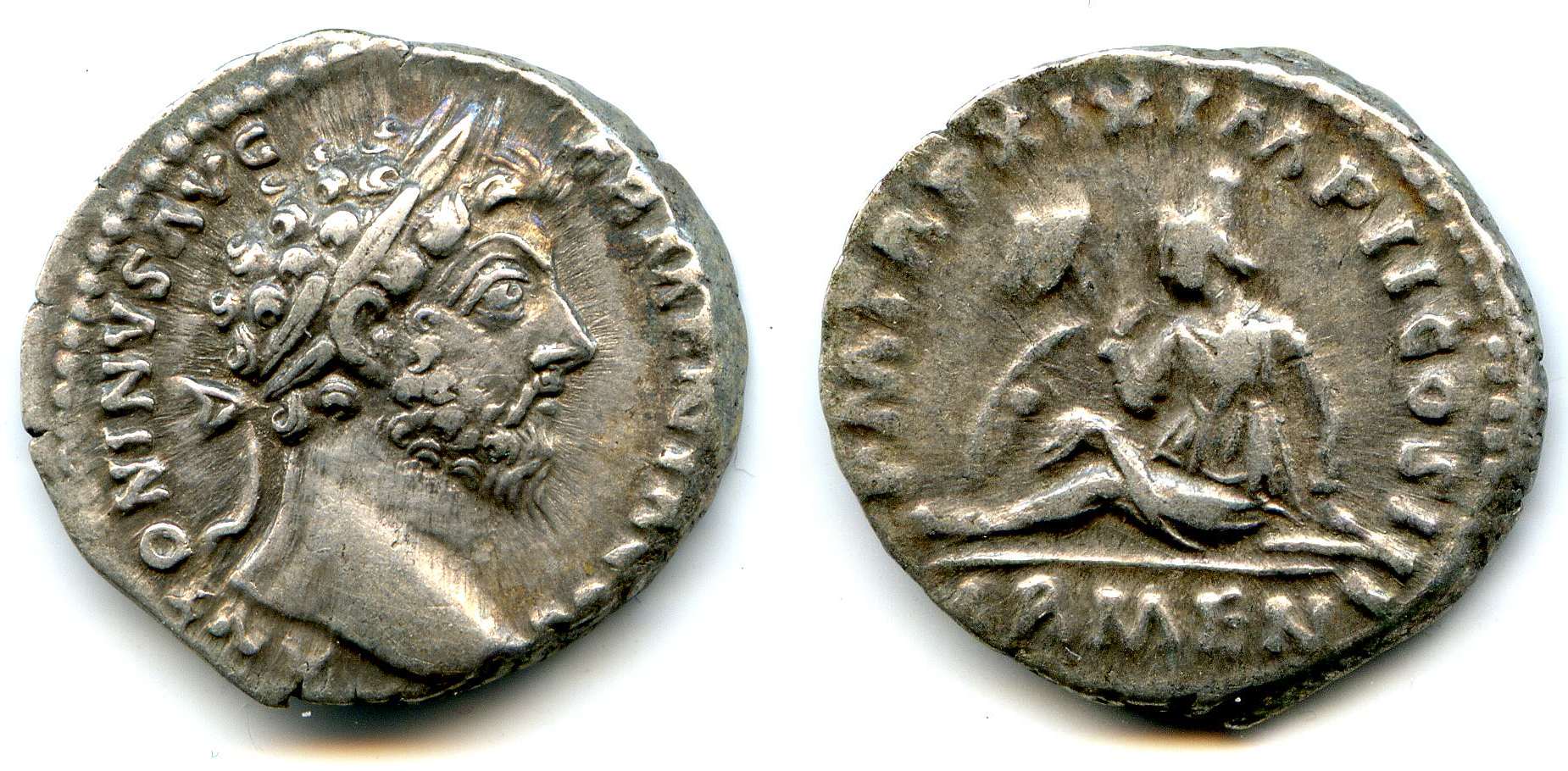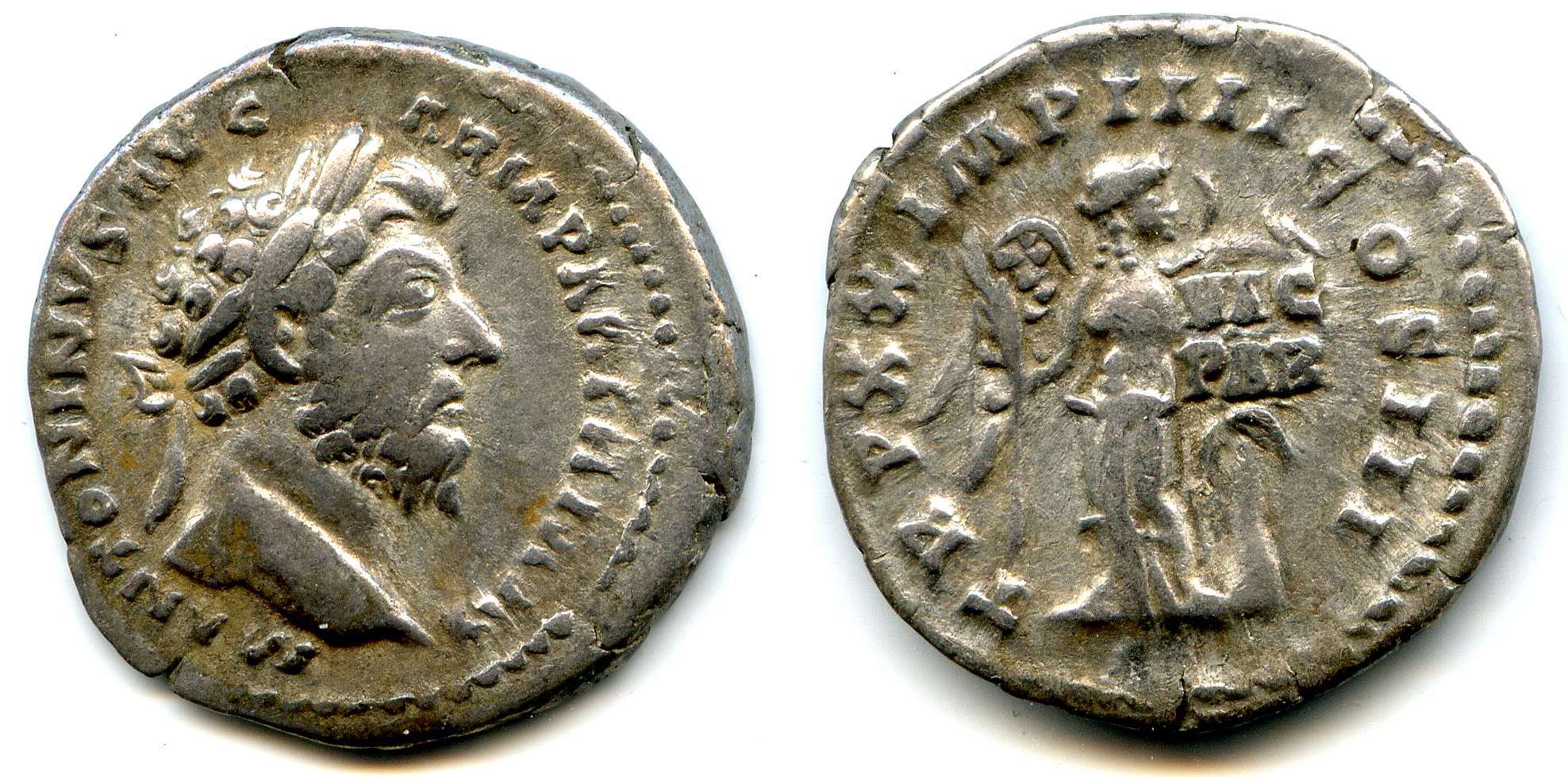Marcus Aurelius
Emperor of Rome, 161-180 AD, and Stoic Philosopher

Silver Denarius, 17 mm.
O: Bust of Marcus Aurelius
R: Personification of Armenia seated on the ground, shield and vexillum
before her. This scene refers to the conquest of Armenia in 164 AD.
Struck 164-5 AD in Rome.

Silver Denarius, 19 mm.
O: Bust of Marcus Aurelius
R: Victory with shield inscribed VIC PAR. This scene refers to
military victories won by Lucius Verus over Parthia in 166 BC.
Struck 166 AD in Rome.
Born Marcus Annius Verus, he was adopted by the emperor Antoninus Pius in 138 and married to his daughter Faustina a few years later. He succeeded to the throne on Antoninus's death.
Marcus Aurelius was a kind, competent, and respected monarch. He was a champion of the poor, for whom he founded schools, orphanages, and hospitals and alleviated the burden of taxes. He also tried to humanize criminal laws and the treatment of slaves by their masters. Nonetheless, he ruthlessly persecuted the Christians, believing them a threat to the imperial system.
Educated by the best tutors in Rome and Athens, Marcus was a devotee of Greek learning and of the philosophy of Stoicism. He is known for his Meditations, a 12 volume work which represents an important formulation of the philosophy of Stoicism. The work reveals his belief that the moral life leads to tranquility, and stresses the virtues of wisdom, justice, fortitude, and moderation.
Despite his impressive intellectual, leadership, and humanitarian skills, his reign is looked upon as a turning point in Roman history -- a turn for the worse. In contrast to the peaceful reign of his predecessor, his reign saw nearly constant warfare. Legions returning from the Parthian war brought with them a plague that spread throughout the empire. And when Marcus passed away -- perhaps from the plague -- he left behind an empire engaged in conflicts it could not win. He also left his throne to his son, Commodus, who soon became famous for his megalomania and incompetence.